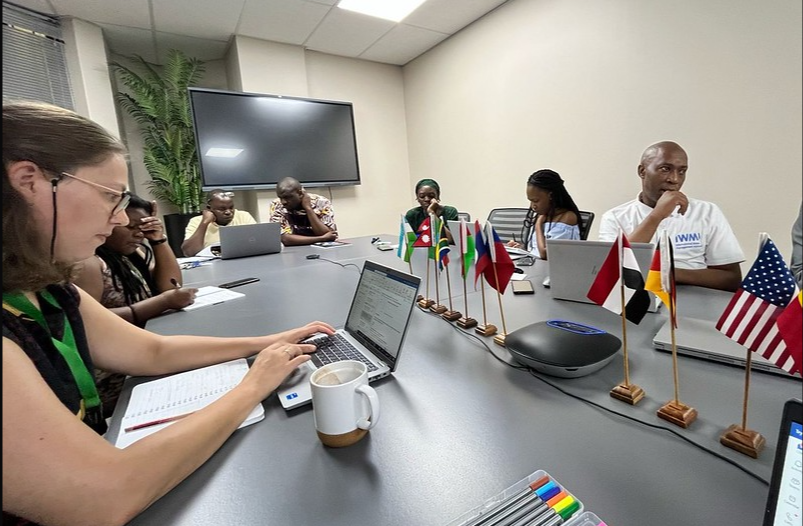By Staff Reporter
Through resource efficiency, circular design, water reuse, repair and recycling, African nations can customize their economic systems to maximize both social benefits and sustainability.
Circularity models hold immense promise for fostering inclusivity in Africa, addressing pressing economic and social challenges while promoting sustainable development. By reimagining traditional linear models of production and consumption, a circular economy offers opportunities for growth that benefit all segments of society. However, there is no one-size-fits-all approach: each African country needs to adapt its policies according to their particular needs and resources.
Henry Roman, Regional Representative for Southern Africa at the International Water Management Institute (IWMI) spoke to journalists in Pretoria and online participants on this topic during an event on March 7, 2024.
According to Roman, circular economy represents an opportunity.
“In Africa, where resource scarcity and environmental degradation pose significant obstacles to development, embracing circular principles can unlock new avenues for job creation, entrepreneurship, and community empowerment. Through initiatives such as designing out waste, resource cycling and innovative product design, the circular economy can harness the continent’s abundant resources and creativity to generate shared prosperity. Furthermore, by prioritizing local production, resource efficiency, and social equity, the circular economy has the potential to reduce inequalities, empower marginalized communities, and promote resilient, self-sustaining economies across Africa,” Roman said.
In adopting the circular economy, Africa can chart a path towards a more inclusive and sustainable future, where economic prosperity is intrinsically linked to environmental stewardship and societal well-being.

“Circular economy is not just waste management, recycling, reuse or reduction alone. The principles of circular economy involve designing out waste and pollution, keeping products and materials in use, and regenerating natural systems. It emphasizes resource efficiency, circular design, product longevity, reuse, repair, and recycling to create a sustainable, closed-loop system that minimizes environmental impact and maximizes economic benefits,” Roman explained.
To ensure water security, we must consider circular approaches to its management: water reuse, recycling, and resource recovery in the form of nutrients from wastewater. The reuse of wastewater does not always have to be to potable standards — it can meet industrial or agricultural standards, minimizing the cost of treatment.
Roman discussed stats from The Circularity Gap Report 2024 indicating that, despite the circular economy entering the mainstream, global circularity is in decline. The share of secondary materials entering the economy has declined from 9.1% in 2018 to 7.2% in 2023. In the last six years, we have consumed nearly as many materials as in the last century. It is, therefore, critical that circular solutions are designed with the developing world in mind.
“The very presence of media representatives from Ethiopia, Kenya, Rwanda, South Africa, Tanzania, Zambia, and other African countries in this talk shows that this is the time and season. For a just transition, we must take a system-thinking approach in implementation of the circular economy, because economic transformation has to be inclusive. Circular economy has the potential to create new forms of work and reduce societal inequalities in Africa, and the world at large,” concluded Roman.
The International Water Management Institute (IWMI) is an international, research-for-development organization that works with governments, civil society and the private sector to solve water problems in developing countries and scale up solutions. Through partnership, IWMI combines research on the sustainable use of water and land resources, knowledge services and products with capacity strengthening, dialogue and policy analysis to support implementation of water management solutions for agriculture, ecosystems, climate change and inclusive economic growth. Headquartered in Colombo, Sri Lanka, IWMI is a CGIAR Research Center with offices in 15 countries and a global network of scientists operating in more than 55 countries


